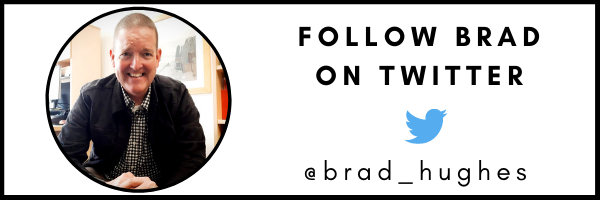TL;DR:
- Reframe misbehavior by understanding behaviors may actually be attempts to adapt to stressful situations.
- We should identify and reduce stressors instead of waiting for them to occur and reacting to them.
- Gain trust by first demonstrating that YOU are trustworthy.
- Companioning others through stressful times helps us grow trust, strengthen relationships, and better serve families and communities.
Educators devote considerable time and energy—and sometimes heartache and sleepless nights—to addressing so-called ‘misbehavior’. I’m grateful that Dr. Stuart Shanker and Dr. Susan Hopkins of The MEHRIT Centre taught me the important distinction between mis-behavior and stress-behavior.
Compounding Stressors
Stress is part of life. It may be positive or negative, visible or hidden, minor or toxic. Self-regulation is about how we recognize and respond to stress in its many facets, and balance energy and tension. Dr. Shanker identifies five stress domains: cognitive, emotional, social, pro-social, and environmental. Left unchecked, stressors tend to compound and multiply into stress cycles that impact behavior.
Research in neuroscience and physiology reveals that challenging behaviors may actually be attempts to adapt (however undesirably) to stressful situations. Share on XMisbehaving or Maladapting?
Many students are not choosing to be inattentive, disruptive, or confrontational. Nor should they necessarily be accused of not having enough self-control. Research in neuroscience and physiology reveals that challenging behaviors may actually be attempts to adapt (however undesirably) to stressful situations. Community distress due to the COVID-19 pandemic—job or housing loss, food scarcity, family illness, or death—makes dysregulated, stress-related behavior seem inevitable.
The Stress Detective
What if we could reduce the stressors overloading someone before problematic behavior occurs? When we seek to pinpoint and reduce ‘upstream’ stress, we find a purpose grounded in curiosity, not compliance. First, we shift from judgment and reactivity to empathy and compassion. Then, we start to unlock solutions and competencies that the stress is masking. By identifying and reducing stressors, we uncover the wells of capacity within each of us.
Meet Them Where They Are
As a teacher, I frequently pulled out all the stops to draw students into the learning, and still had students that were disengaged and disruptive. I received it as lacking appreciation and ruining a great experience for others and followed up with compliance-based consequences. Now I wonder if pulling out all the stops meant my stance was “keep up with ME” instead of “how can I come alongside YOU?” I may have been creating stress rather than reducing it. I was forgetting to meet them where they are.
Trustworthiness First
Should educators expect trust or respect for authority as moral prerequisites? We have no idea what setbacks, broken trusts, or traumas others carry with them. Breakthroughs take time—sometimes a LOT of time—and they’re always founded on first demonstrating we are trustworthy. We must continuously challenge our assumptions and reframe challenging situations with curiosity and vulnerability. Energy-intensive? Definitely. Worth it? Absolutely.
Start with Compassion
Our own stress naturally rises with the distractions and disruptions around us. We can get caught in our own stress cycles and lose access to our reserves of patience and problem-solving—to our own wells of capacity. At times my frustration about student ‘misbehavior’ grew to the point of anxiety.
Eventually, my inability to influence the disruptive behavior of certain students became overwhelming. It took time and support for me to discover that the first step was having compassion for myself. Then I began to trust that I could leverage my relationships with students (and their parents) to find ways to handle whatever came next. Now I’m better able to help others working through similar stresses to reduce them before overwhelm, and lead the shift towards approaches that consider complex behavior through a self-reg lens.
[scroll down to keep reading]
Reframe Misbehavior: Losing It to Find It
When we or others ‘lose it’ along the way, it’s reassuring to remember that setbacks, and even suffering, are part of being human. When we recognize our common humanity in these moments, we invite grace for ourselves and others. Remember, no one would choose a meltdown! May companioning others through stressful times help us grow trust, strengthen relationships, and better serve our families and communities.
About Brad Hughes
Brad is an elementary school principal with 25 years’ experience in education. He is currently at Forest Hill Public School in Kitchener, Ontario, Canada, designated a HERO Generation school in the Waterloo Region District School Board. Prior to becoming a school leader, Brad taught for 16 years in classrooms from Kindergarten to eighth grade, most recently teaching middle school Visual Arts, French and Special Education.
Brad is a certified Self-Reg School Champion and has an ongoing commitment to reframing the joys and challenges of school life through a Self-Reg lens. Brad and his wife Jennifer are proud parents of a son and daughter both in university. He describes himself as an optimist and recovering perfectionist who is passionate about #LeadingWithLove and improving the lives of kids by supporting the adults that serve them.


